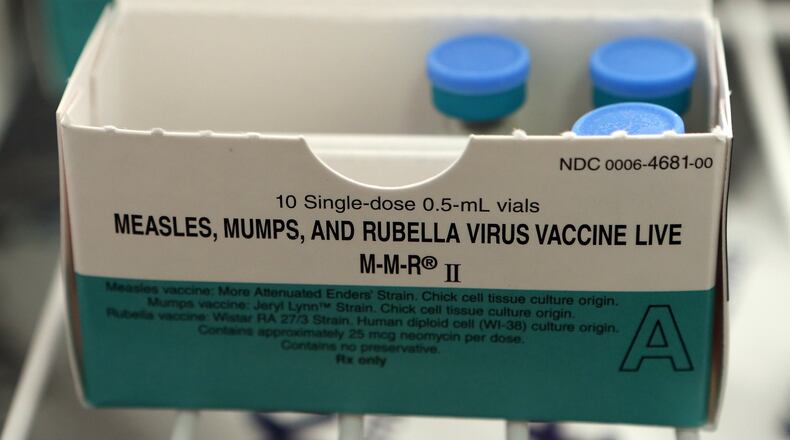Georgia health officials on Tuesday confirmed three cases of measles, all within the same metro Atlanta family.
No additional information was released about the family, including the ages of those affected, which county they lived in or where they could have contracted the disease.
The only information released is that none of those who fell ill had been vaccinated.
“Measles is highly contagious for people who are not vaccinated,” Georgia Department of Public Health spokeswoman Nancy Nydam said in an email. “The MMR vaccine (measles, mumps, rubella) is one of the most effective vaccines we have. So measles, while highly contagious, are preventable through vaccination.”
Two of the cases were confirmed on Jan. 13, and the third case was confirmed on Jan. 26.
Concern about measles has heightened after public health officials rushed to contain an outbreak in the U.S. Northwest in Oregon and in Washington, in a region with lower-than-normal vaccination rates, according to The Associated Press. Dozens have been sickened.
In the past 14 years, there have been six reported cases of measles in Georgia, the most recent in 2015, according to health officials.
Measles, a reportable disease, is highly contagious and is spread by airborne droplets when an infected person coughs or sneezes.
RELATED: What is measles and how can you prevent it?
Symptoms begin with a fever, followed by a cough, runny nose, and/or red, watery eyes. After two to three days, the fever peaks and a rash appears at the hairline and spreads on the face and rest of the body.
Health officials have strongly advised that parents vaccinate their children.
There are two vaccination exemptions allowed by Georgia law — medical and religious.
The compliance rate for the MMR vaccine for the 2017-2018 school year was 93 percent, according to the state.
RELATED: Experts urge vaccinations amid measles outbreak in the Northwest
In the most recent Georgia cases, public health officials have notified individuals who may have been exposed to the virus and potentially at increased risk for developing measles. So far, there have been no reports of secondary cases of measles.
Anyone who becomes sick or thinks they may have been exposed to measles should contact their health care provider immediately.
Because the virus is so contagious, people who think they’ve been exposed are advised not to go to the doctor’s office, the hospital or a public health clinic without calling first. Your health care provider or public health nurse will advise you about what you should do.
The MMR vaccine prevents measles and two other viral diseases — mumps and rubella. More than 95 percent of the people who receive a single dose of the vaccine will develop immunity to all three viruses. A second dose boosts immunity, typically enhancing protection to 98 percent.
The Centers for Disease Control and Prevention recommends that all people be routinely vaccinated between 12 and 18 months of age, and receive a booster between 4 and 6 years of age. If adults don't have evidence of immunity, they should get at least one dose of MMR vaccine, the CDC says. Such evidence would include written documentation of vaccination or lab evidence of immunity.
People born before 1957 are generally considered immune because they probably had the disease when they were younger.
About the Author
The Latest
Featured



